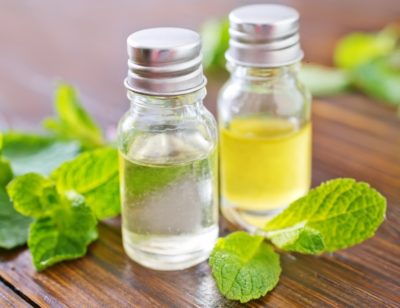
IPFS News Link • Surviving the Collapse
The Absolute Best Essential Oils To Stockpile For Emergencies
• http://www.offthegridnews.comThe Absolute Best Essential Oils To Stockpile For Emergencies

Image source: KSDK
Stockpiling food and fuel may not be enough to stay healthy during disasters, natural or man-made. Illnesses have a way of visiting even the healthiest of people when we are most inconvenienced. When you are in a situation with no access to medical care, a careful selection of essential oils can be your best friend. Used for thousands of years as medicines, it is not difficult to see how essential oils can be viewed as beneficial gifts from nature.
One of the greatest advantages of essential oils is that they are multipurpose. Unlike most of the modern drugs that have specific uses, a single essential oil can work in many different ways to relieve several complaints – and typically without side effects. Another benefit is that many of them work on the body and the mind at the same time. Take lavender oil, for example. It can act on the mind, relieving stress and jolting you out of a low mood. It relaxes body and mind, and can lull you to sweet sleep. It also has anti-inflammatory properties that work against skin allergies and burns.
As you add essential oils to your cache of emergency provisions. you need to learn about the different uses of each one. This knowledge will help you make the best use of your stock. If you're a novice, it may be a good idea to start using these oils to treat everyday problems. That way you can get the hang of using them. But be warned: You will be hooked.
Here's a short list of the essential oils that should make your list, along with some of their important uses.
1. Lavender
The multifaceted lavender oil is always on the top of the list. If you could have only a single essential oil with you, this should be it.
The Hidden Secrets Of Making Herbal Medicines…Right At Your Fingertips!
If you're stung by a bee, apply a drop of lavender oil at the site to reduce pain and swelling. For minor burns and scalding you can apply three to four drops; in many cases, you will not even see redness on the skin afterwards. Eczema sufferers get relief with the application of a few drops of lavender oil in carrier oils such as coconut oil.
To derive its calming effect, you can rub a few drops on your wrists, temples and feet, or it can be used in a diffuser. Dabbing it on your pillow will ensure restful sleep. If you have motion sickness, a tiny drop on the tip of your tongue or behind your ears will clam the sensation.
Lavender oil also has antibiotic properties. When applied on a cut, it can stem bleeding and prevent infections. A tissue dampened with this oil can be kept under your nose to help stop nosebleeds.
2. Roman Chamomile
Chamomile used to be an essential item in every household with babies and young children. It has been traditionally used for a number of childhood ailments including colic in infants. The oil should be diluted for internal use in children, but it can be used externally for earaches, stomachaches and fevers. Again, a diffuser can also be used.
A drop of chamomile with tea can be taken for a week to get rid of worms. Massaging a few drops on the stomach and the reflex points on the feet also may have a similar effect. The anti-inflammatory and anti-spasmodic property of this oil can be utilized to get relief from sciatica, hemorrhoids, muscle spasms, bruises and rashes.
3. Peppermint
 Peppermint's use as a digestive aid and anti-flatulent is age old. To benefit from the carminative property of peppermint oil, a few drops of it can be added to tea when you cannot get ahold of fresh peppermint leaves. It also relieves nausea and motion sickness when inhaled.
Peppermint's use as a digestive aid and anti-flatulent is age old. To benefit from the carminative property of peppermint oil, a few drops of it can be added to tea when you cannot get ahold of fresh peppermint leaves. It also relieves nausea and motion sickness when inhaled.
Peppermint is a respiratory aid, helping relive congestive conditions like sinusitis, bronchitis and asthma. Add a few drops to boiling water and inhale the fumes. Rubbing a little on the chest will relieve cough and cold. Apply a few drops on the forehead for relief from headache.
4. Clove
Clove oil is a common ingredient in mouthwashes and toothpastes. A crushed clove pressed onto an aching tooth can provide instant relief because of its numbing effect. But its use is not restricted to dental hygiene and cavities.
It is a powerful anti-inflammatory agent that can be used to relieve muscle pains, swelling, respiratory disorders and tension headaches. Clove oil is effective against fungal infections and scabies, too. It is a strong oil that can burn the skin; hence testing on a small area and dilution with a carrier oil before application are essential. Gargling with salt water containing a few drops of clove oil can soothe a sore throat.
5. Lemon Grass
Lemon grass oil is a strong smelling essential oil that is known to repel head lice in people and fleas in pets. It also has analgesic and anti-inflammatory properties that help people suffering from arthritic pain.
Lemon grass is an essential ingredient in many cuisines, which is ample evidence of its beneficial effect on the digestive system. It increases the assimilation of nutrients and reduces gas. It acts as a diuretic, too, helping to eliminate toxins from the body. Use it in a diffuser to bring down high fever.
In recent studies, this oil has been found to be the most effective against MRSA bacteria among 91 essential oils tested. Use it to treat athlete's foot and ringworm, too.


























